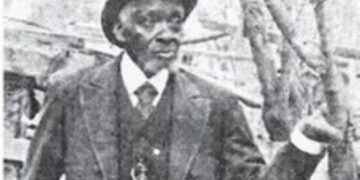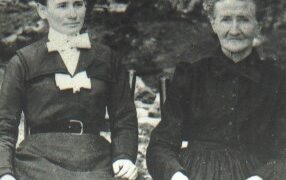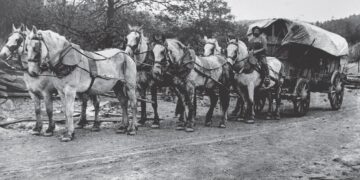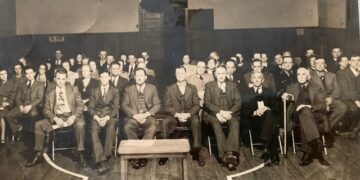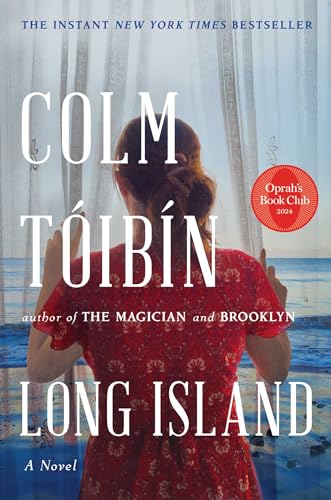
Colm Tóibín’s Brooklyn (2009) and Long Island (2024)
Colm Tóibin is arguably Ireland’s most outstanding living novelist: since the late 1980s, he has written eleven novels, two collections of short stories, poetry, drama, and nonfiction. In 2021 when asked to estimate the total number of articles he has written, he replied, “I suppose thousands might be accurate.” Tóibín has received numerous awards for his work including the 2006 International Dublin Literary Award, one of the most lucrative literary awards in the world. Today, Tóibín owns homes in the US (Los Angeles), Dublin and rural Ireland.
Tóibín has also had a prestigious academic career, first serving as visiting professor at the University of Texas at Austin, and at Princeton. He followed Martin Amis as professor of creative writing at the University of Manchester in the UK and was Chancellor of the University of Liverpool between 2017 and 2022. He is currently serves as Irene and Sidney B. Silverman Professor of the Humanities at Columbia University.
Several of Tóibín’s novels deal with Irish society both in Ireland and abroad. His Irish immigrants often feel exiled from the rural areas they still call home. Enniscorthy, where Tóibín was born and spent his early years, is the partial setting of both Brooklyn and Long Island. Irish Roman Catholicism is also central to his fiction. The main character of Brooklyn (2009) is Eilis Lacy, an Irish immigrant version of Theodore Dreiser’s Carrie Meeber in Sister Carrie. Tóibín set his novel more than 50 years later, but both young women move from rural areas to large cities in search of their respective “fortunes.” Carrie Meeber moves from the rural Midwest first to Chicago, then to New York City; Eilis Lacy moves from Enniscorthy to Brooklyn. She is only partly educated when she takes the ship from Dublin to escape her impoverished environment. Like Carrie, Eilis does not know how she will make her way in an urban environment, but, firmly grounded in Roman Catholicism, she, unlike Carrier, does not use her body to get ahead.
With the help of the Irish priest who had encouraged her to immigrate, Eilis gets a job as a clerk in a department store. Living in a rooming house run by an older Irish immigrant, she suffers severe homesickness, partly because she is, smarter and a bit more self aware than other residents of the house. Tóibín does an outstanding job of creating an immigrant enclave like the ones that still exist in large cities and even in small towns as immigrants continue to flock to the US. When Eilis arrives in Brooklyn, virtually everybody she meets is an Irish immigrant or a first-generation American, but she soon connects with Tony Fiorello, her future husband, at an Irish dance patterned after those she left behind.
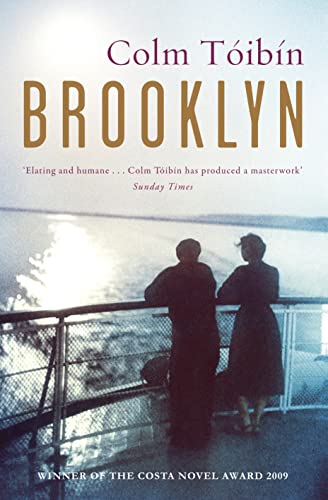
One clear advantage that Eilis has over Carrie Meeber is that by1950, colleges are open to women. She enrolls in a two-year accounting/bookkeeping course at Brooklyn College and earns a certificate that could have given her a chance at a semi-professional job if she hadn’t met Tony. He falls in love with her, and she loves him, but is not eager for a hasty marriage. Unlike Carrie, who never looks back, Eilis remains emotionally tied to her family in Ireland. Having earned her accounting diploma, she decides to make a return visit to Enniscorthy after the death of her older sister, Rose.
Realizing that she likely will not return to the US if she remains unmarried, Tony forces her into a civil marriage. Returning to her hometown, Eilis, now well-groomed, well-dressed, and much more sophisticated, finds herself something of a star. In spite of being married, she takes up with Jim Ferrell who had snubbed her at an Irish dance shortly before she immigrated. When their relationship begins to become physical, she is tempted to stay in Enniscorthy, but when news of her marital status reaches the town, she has no choice but to head back to Brooklyn.
Long Island (2024) takes up Eilis’s life about 25 years after her return to Brooklyn and Tony Fiorello. Through the years, she and Tony have had two children and fulfilled his family’s dream of establishing a family demesne on Long Island. Eilis, now around forty-five, has lived a placid existence, one that has left her unfulfilled. She loves her well-brought up children, but Larry is sixteen and Rosella has just finished high school and will soon be off to college. Her relationship with Tony, never one involving high romance, has become settled.
A major break occurs when an unknown man appears at her door to announce that Tony, who has worked as a successful plumber all these years, has impregnated the man’s wife. Irate, the man announces that when the child is born, he plans to drop it off at the Fiorellos’ home. Left in a confused and bitter quandary, Eiliis refuses to accept Tony’s love child even though Tony’s family is willing to raise it.
With her children, Eilis flees to Ireland and reunites with Jim Ferrell, who has never married, but is secretly engaged to Eilis’s early best friend, now a widow. Larry and Rosella meet their Irish grandmother for the first time and become intrigued with rural Ireland, but when Eilis learns of Ferrell’s engagement, she leaves Ireland again, still unfulfilled. A reviewer at The New Yorker asserts that Tóibín’s novels “depict an unfinished battle between those who know what they feel and those who don’t.” Eilis’s uncertainty offers Tóibín an opportunity to continue her story in yet another novel.
.
.
.
.
.
















